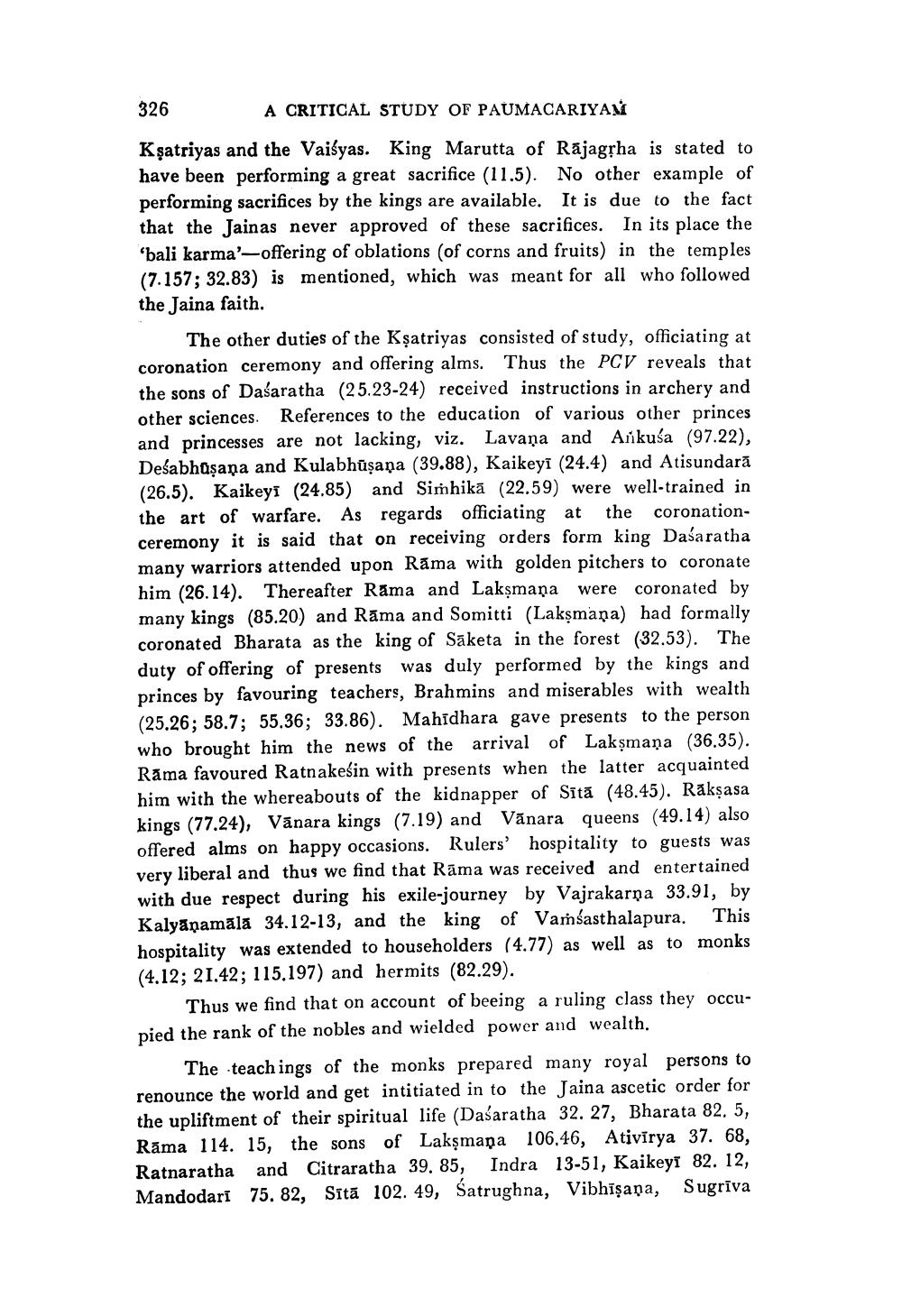________________
326
A CRITICAL STUDY OF PAUMACARIYAN
Kşatriyas and the Vaiśyas. King Marutta of Rajagủha is stated to have been performing a great sacrifice (11.5). No other example of performing sacrifices by the kings are available. It is due to the fact that the Jainas never approved of these sacrifices. In its place the 'bali karma'-offering of oblations (of corns and fruits) in the temples (7.157; 32.83) is mentioned, which was meant for all who followed the Jaina faith.
The other duties of the Ksatriyas consisted of study, officiating at coronation ceremony and offering alms. Thus the PCV reveals that the sons of Dasaratha (25.23-24) received instructions in archery and other sciences. References to the education of various other princes and princesses are not lacking, viz. Lavana and Ankusa (97.22), Deśabhaşana and Kulabhūşaņa (39.88), Kaikeyi (24.4) and Atisundarā (26.5). Kaikeyi (24.85) and Simhikā (22.59) were well-trained in the art of warfare. As regards officiating at the coronationceremony it is said that on receiving orders form king Dasaratha many warriors attended upon Rāma with golden pitchers to coronate him (26.14). Thereafter Rama and Lakşmaņa were coronated by many kings (85.20) and Rāma and Somitti (Lakşmaņa) had formally coronated Bharata as the king of Sāketa in the forest (32.53). The duty of offering of presents was duly performed by the kings and princes by favouring teachers, Brahmins and miserables with wealth (25.26; 58.7; 55.36; 33.86). Mahīdhara gave presents to the person who brought him the news of the arrival of Lakşmaņa (36.35). Rama favoured Ratnakesin with presents when the latter acquainted him with the whereabouts of the kidnapper of Sītā (48.45). Raksasa kings (77.24), Vānara kings (7.19) and Vānara queens (49.14) also offered alms on happy occasions. Rulers' hospitality to guests was very liberal and thus we find that Rāma was received and entertained with due respect during his exile-journey by Vajrakarņa 33.91, by Kalyānamala 34.12-13, and the king of Vamśasthalapura. This hospitality was extended to householders (4.77) as well as to monks (4.12; 21.42; 115.197) and hermits (82.29).
Thus we find that on account of beeing a ruling class they occupied the rank of the nobles and wielded power and wealth.
The teachings of the monks prepared many royal persons to renounce the world and get intitiated in to the Jaina ascetic order for the upliftment of their spiritual life (Dasaratha 32. 27, Bharata 82. 5, Rāma 114. 15, the sons of Laksmana 106.46, Ativīrya 37. 68, Ratnaratha and Citraratha 39, 85, Indra 13-51, Kaikeyi 82. 12, Mandodari 75. 82, Sitā 102. 49, Satrughna, Vibhīşana, Sugrīva




